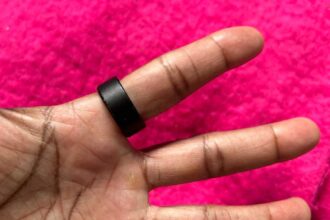Credit: Pixabay/CC0 Public domain
A new study finds that a chemical formed when we digest a commonly used sweetener is “genotoxic,” meaning it breaks down DNA. The chemical is also found in trace amounts in the sweetener itself, and the finding raises questions about how the sweetener may contribute to health problems.
Sucralose is a commonly used artificial sweetener sold under the trade name Splenda. Previous work by the same research team found that several fat-soluble compounds are produced in the gut after sucralose ingestion. One of these compounds is sucralose-6-acetate.
“Our new work establishes that sucralose-6-acetate is genotoxic,” said Susan Schiffman, corresponding author of the study and an adjunct professor in the joint department of biomedical engineering at North Carolina State University and the University of North Carolina at Chapel. Hill. “We also found that traces of sucralose-6-acetate can be found in ready-to-use sucralose even before it is consumed and metabolized.
“To put this in context, the European Food Safety Authority has a toxicological threshold for all genotoxic substances of 0.15 micrograms per person per day,” says Schiffman. “Our work suggests that the trace amounts of sucralose-6-acetate in a single daily sucralose-sweetened beverage exceed that threshold. And that’s not even counting the amount of sucralose-6-acetate produced as metabolites after humans consume sucralose.”
For the study, researchers conducted a series of in vitro experiments in which human blood cells were exposed to sucralose-6-acetate and monitored for markers of genotoxicity.
“Basically, we found that sucralose-6-acetate is genotoxic and that it effectively broke DNA in cells exposed to the chemical,” says Schiffman.
The researchers also conducted in vitro tests in which human intestinal tissue was exposed to sucralose-6-acetate.
“Other studies have shown that sucralose can negatively impact gut health, so we wanted to see what might happen there,” says Schiffman. “When we exposed sucralose and sucralose-6-acetate to intestinal epithelial tissues – the tissue that lines your intestinal wall – we found that both chemicals cause a ‘leaky gut’. Basically, they make the intestinal wall more permeable. The chemicals damage the ‘tight junctions’ or interfaces, where cells in the intestinal wall connect to each other.
“A leaky gut is problematic because it means that things that are normally flushed out of the body in the stool instead leak out of the gut and are absorbed into the bloodstream.”
The researchers also looked at the genetic activity of the intestinal cells to see how they responded to the presence of sucralose-6-acetate.
“We found that intestinal cells exposed to sucralose-6-acetate had increased activity in genes related to oxidative stress, inflammation and carcinogenicity,” says Schiffman.
“This work raises a host of concerns about the potential health effects associated with sucralose and its metabolites. It is time to revisit the safety and regulatory status of sucralose as evidence mounts that it poses significant risks If nothing else, I encourage people to avoid products that contain sucralose. It’s something you shouldn’t be eating.”
The newspaper, “Toxicological and pharmacokinetic properties of sucralose-6-acetate and its parent sucralose: in vitro screening assays‘, says in the Journal of Toxicology and Environmental Health, Part B. The paper was co-authored by Troy Nagle, Distinguished Professor of Biomedical Engineering at NC State and UNC and Distinguished Professor of Electrical and Computer Engineering at NC State; Terrence Furey, professor of genetics and biology at UNC; and Elizabeth Scholl, a former researcher at NC State who currently works at Sciome LLC.
More information:
Susan S. Schiffman et al, Toxicological and pharmacokinetic properties of sucralose-6-acetate and its parent sucralose: in vitro screening assays, Journal of Toxicology and Environmental Health, Part B (2023). DOI: 10.1080/10937404.2023.2213903
Quote: Chemical found in common sweetener damages DNA (2023, May 31) Retrieved June 1, 2023 from https://medicalxpress.com/news/2023-05-chemical-common-sweetener-dna.html
This document is copyright protected. Other than fair dealing for private study or research, no part may be reproduced without written permission. The content is provided for informational purposes only.





